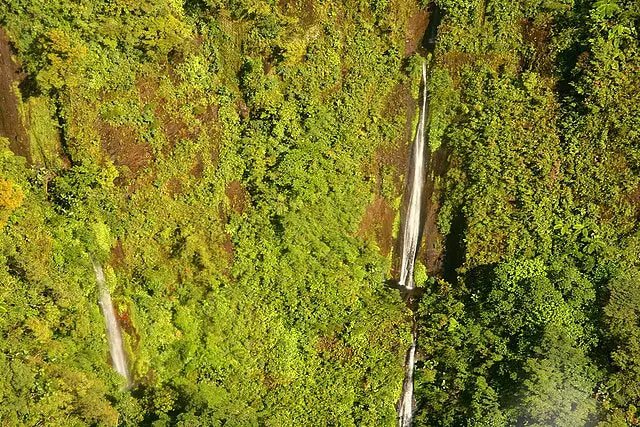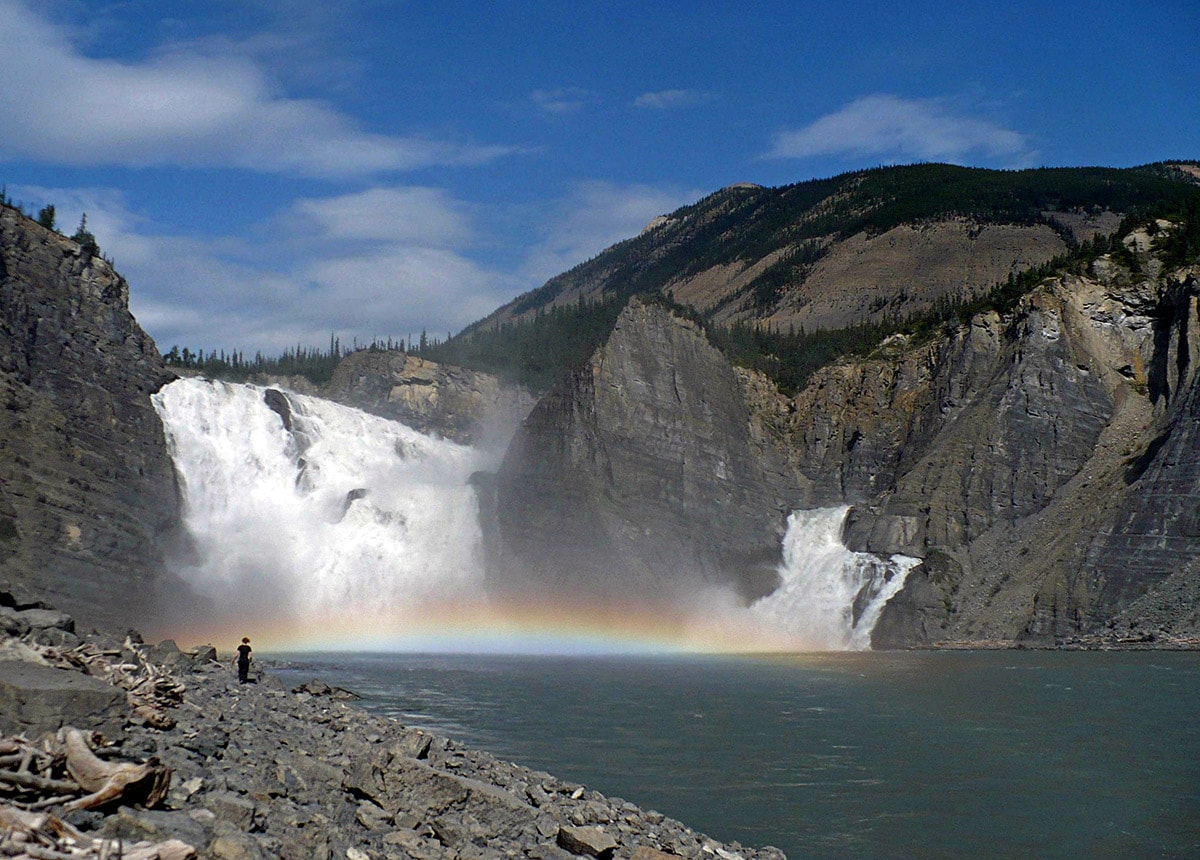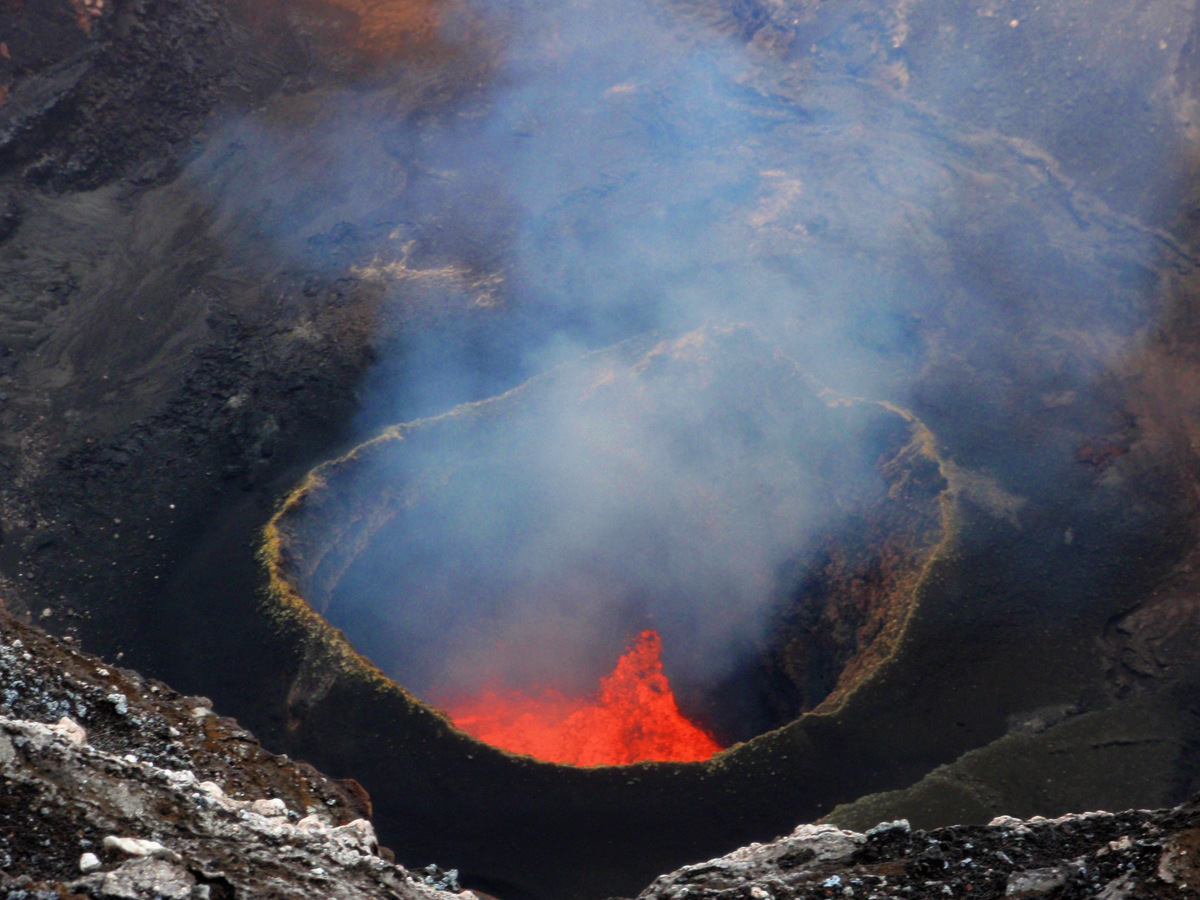World 🢖 Australia and Oceania 🢖 Melanesia 🢖 Papua New Guinea
Waterfalls 🢔 Geological wonders 🢔 Categories of wonders
Wonder
Bisi Falls (Wasi falls)
 In short
In short
The most impressive falls in Papua New Guinea are Bisi Falls – the largest of Wasi Falls. Main part of this magnificent waterfall is some 100 m tall and approximately 90 m wide, but there is an "extension" – 200 m wide front of waterfalls formed by powerful springs.
 41.3%
41.3%
GPS coordinates
Location, address
Alternate names
Height
Width
Map of the site
If you see this after your page is loaded completely, leafletJS files are missing.
 In detail
In detail
Mubi River
This waterfall has formed on Mubi River some 4.5 km before its confluence with the mighty Kikori River. Here Mubi River flows through the Great Papuan Plateau – a rugged, rather little explored karst area that is covered with pristine rainforest. In this area, there are numerous caves and some have historical importance as they were used as burial caves.
Mubi River here forms a group of falls named Wasi (Wassi) Falls. Bisi Falls are the largest in this group, other two larger falls are Maskimu Falls and Geagosusu Falls.
Geologically this waterfall is fairly new – earlier Mubi River had another course to the east from its present course. Now the former valley of Mubi River is a 600 m deep, dry (if this word can be applied in Papuan rainforest) valley.
Two parts of waterfall
Bisi Falls are unusual falls as they consist of two parts.
The first part is the main fall of the Mubi River itself. As this area receives lots of rain, the Mubi River is rich in water. The huge mass of water leaps over the edge of the cliff and falls for some 100 – 110 m in a forested canyon with eternal mist rising over it.
The second part is not less impressive. Right after the main falls on the left bank of Mubi from the cliffs flow powerful springs which form some 200 m wide veil of falling water. These falls are not entirely vertical – they flow down along a steep cliff.
These springs – waterfalls are intriguing. It is very possible that behind these springs can be found an extensive cave system or several caves. It is also possible that these springs belong to the world’s most powerful ones.
History and tourism
This sparsely populated area is inhabited by Foi (Foimena) people – but they also live more towards the north from this site.
First white man to reach the falls was Wilfred Beaver in 1911, but the first description of the falls was made by Sydney Chance in 1926 who named them "Beaver Falls" – after the discoverer.
Nowadays this waterfall is a much-sought tourist destination. Nevertheless, it is hard to reach. Most people come here with a helicopter and for a short time can look at it from above.
Reaching the falls by walking is much harder. Although there is a smaller road not too far, there is no trail leading to the falls.
 Linked articles
Linked articles

Wonders of Papua New Guinea
One of the most exciting and mysterious lands in the world is Papua New Guinea. This country takes half of the second-largest island and numerous other larger and smaller islands. Up to this day, Papua New Guinea is poorly investigated, and here are expected numerous exciting discoveries of geological, biological, and archaeological nature.

Waterfalls
Some of the most fascinating and awe-inspiring natural monuments are waterfalls or locations where a river abruptly changes its elevation.

Wonders of Melanesia
The most amazing wonders of Melanesia are caves and sinkholes, very interesting ecosystems, and, especially – sites of unusual legends.
 Recommended books
Recommended books
Four Corners: A Journey into the Heart of Papua New Guinea
At the age of twenty-four, Kira Salak took a three-month solo trip across Papua New Guinea, making her the first woman to have traversed the whole country. Amid the breathtaking landscapes and wildlife, she navigated the island by dugout canoe and on foot.

